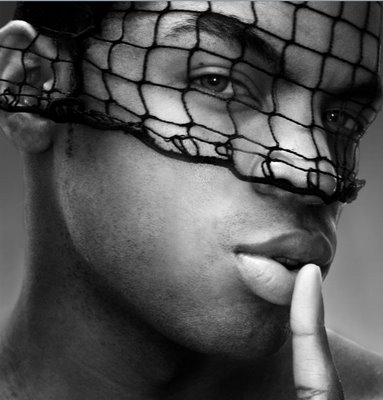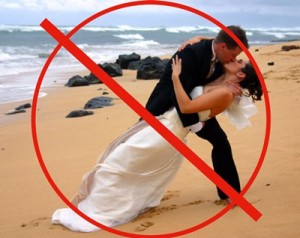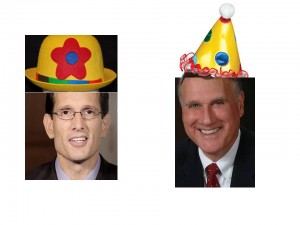 It’s very prevalent in the African-American community. Very!”
It’s very prevalent in the African-American community. Very!”
But nowadays, having expertise (or an ounce of knowledge on a topic) is not mandatory for a media platform. Anyone with a camera aimed at them can spout off at the mouth, claiming that fiction is fact, and it goes completely unchallenged. Meanwhile, Americans continue to be bamboozled.
Had The View actually asked established experts such as the University of Chicago”s Daniel Johnson, White House Office of National AIDS Policy’s Chantell Britton , or the Chicago Centers for Disease Control and Prevention’s Robin Mermelstein to come on the show, all of them would have shut down Shepherd & Company.
They would have said that, yes, closeted gay black men exist, but contrary to popular belief, the DL is not a major force in the rise of HIV infections among black women in this country. And to substantiate this, they probably would have cited the mounds of data and research findings from the numerous studies they have conducted over the years.
They might have even shed some light on what really fuels HIV: people having unprotected vaginal and anal sex with multiple partners or even one partner; high rates of incarceration that take men out of the mating pool and create a system of women sharing the same man; intravenous drug use that accounts for 20 percent of all HIV infections among black women; other untreated sexually transmitted infections (STIs) such as herpes and gonorrhea, which make people more vulnerable to contracting HIV once exposed to the virus; and people having unprotected sex, unaware that they are positive, who are going untreated while highly infectious.
Most important, any one of these experts would have said that there are heterosexual black men who have HIV, and HIV-positive women who pass the virus to men, and everyone needs to get tested. Perhaps the hard facts just weren’t sensational enough for The View.
Unfortunately, AIDS-related misinformation is not just relegated to silly morning talk shows. In October, 2009 CNN, which bills itself as America’s most trusted news source, ran a segment in its Black Men in the Age of Obama special about gay and bisexual black men.
Instead of discussing pertinent issues that gay and bisexual black men in this country face, CNN anchor Don Lemon, Essence Editor-in-Chief Angela Burt-Murray and a panel of ostensibly straight black men (none of whom possessed HIV or LGBT expertise) used the time to talk about how the down low is killing black women. Once again, there was no proof to back up these claims, just regurgitated homophobic hoopla being passed off as news. No bias, no bull? Yeah, right.And to a certain extent, I get it. Thanks to J.L. King and Oprah, the breakdown of Terry McMillan‘s mess of a marriage, countless newspapers , books and magazine articles that Law & Order: SVU episode and our own homophobia, the threat of the down-low man–our generation’s brutal black buck–has been branded onto our cultural imagination and ingrained in our vernacular.
It has infiltrated our newsrooms and our common sense. And while it may be difficult for folks to wrap their heads around an alternate explanation, let’s start trying. Yes, everyone needs to take personal responsibility in their own sex lives when it comes to HIV, but journalists have a responsibility as well–to fairly and accurately report the truth, not make it up as they see fit.
We have to remember that media–whether magazines, radio shows, talk shows or, most important, news outlets–is extremely powerful. People trust the information they are given and rely on it to stay informed. Media shapes how people see themselves and the world around them. And in the case of the down-low brotha, the messages they carry can alter the ability to accurately perceive one’s own risk of contracting HIV.
Looking at how AIDS is covered in the media, what are folks really learning? Black women are “learning” that if their man is not “suspect,” then condoms are not really a necessity. Straight black men are “learning” that this disease has nothing to do with them because they are not gay. Meanwhile, the two are having unprotected sex with each other while we act brand new about how and why this disease is flourishing in our community.
As someone who has watched his mother suffer from the pandemic for the past 25 years , having interned with and consulted with some of the media outlets mentioned, I find it frustrating to see them continue to be tragically off base and completely unapologetic about it, especially when the right information is just one mouse click or a phone call away.
But solely blaming media for this disconnect is as simplistic as the media blaming the AIDS crisis on closeted gay men. People who work in the world of AIDS prevention and treatment–need to stop self-segregating and begin sharing knowledge with media outlets to ensure accurate coverage. And when those outlets don’t get it right, we need to take them to task instead of complaining among ourselves.
Also, those in the LGBT movement, especially the national organizations, need to overcome their AIDS phobia and stop worrying that the stigma of HIV–once labeled a “gay disease”–will negatively affect the work they are doing around issues such as marriage equality, hate crimes and job discrimination. You are still very much part of the AIDS community, whether you like it or not. Stop distancing yourselves and start speaking up.
If we’ve learned anything from these continued erroneous comments, it’s that despite the fact that the information is out there and easily accessible, the media and the average American don’t know what they need to know about HIV (and perhaps they don’t want to). But as we enter the third decade of this epidemic, we don’t have the luxury to continue to be this ignorant. Somehow that knowledge gap needs to be closed. There are just too many lives at stake for it not to be.
Enough With the “D.L.” and HIV: Confessions of a Discreet Male Vol 1.,




